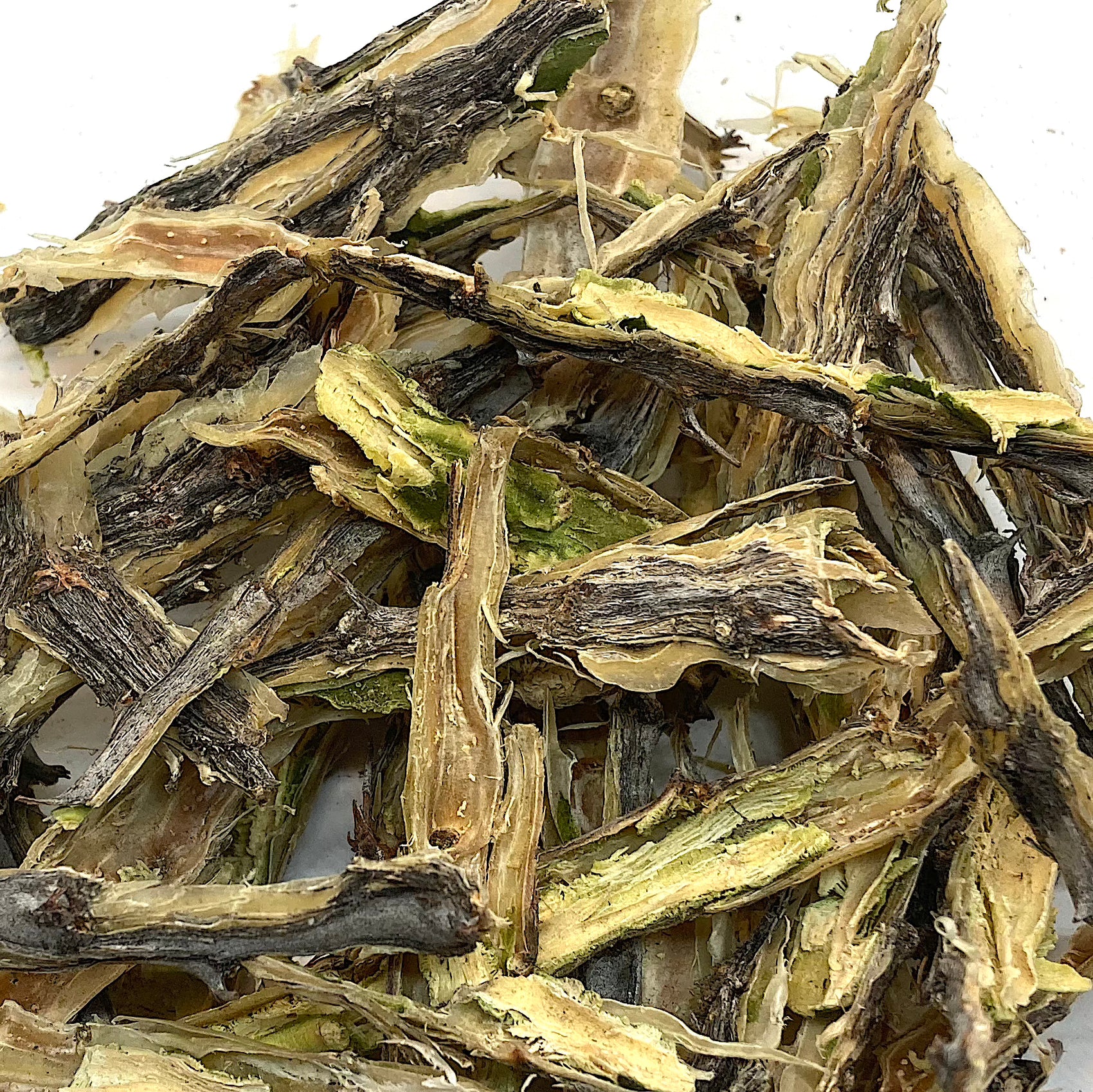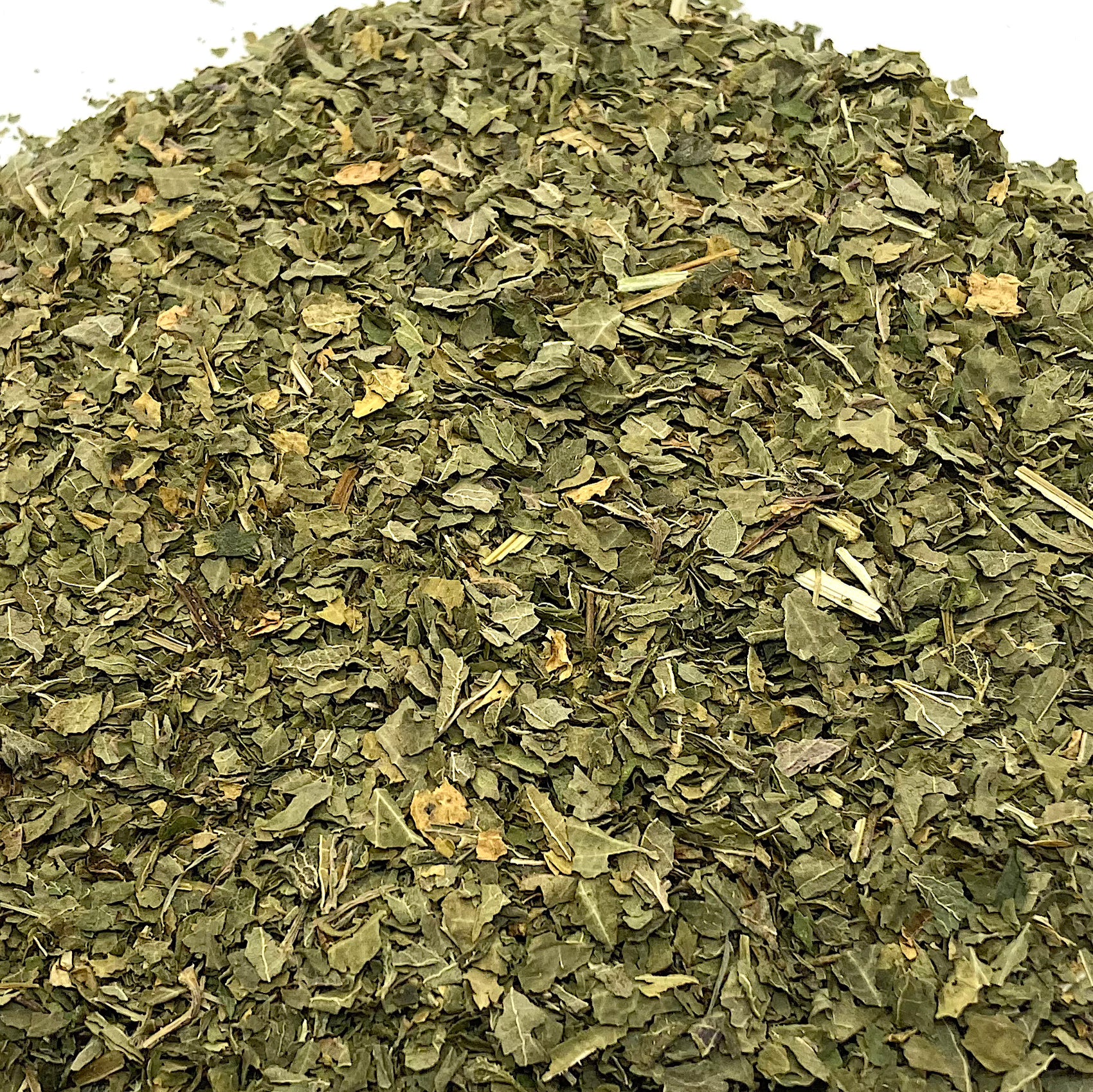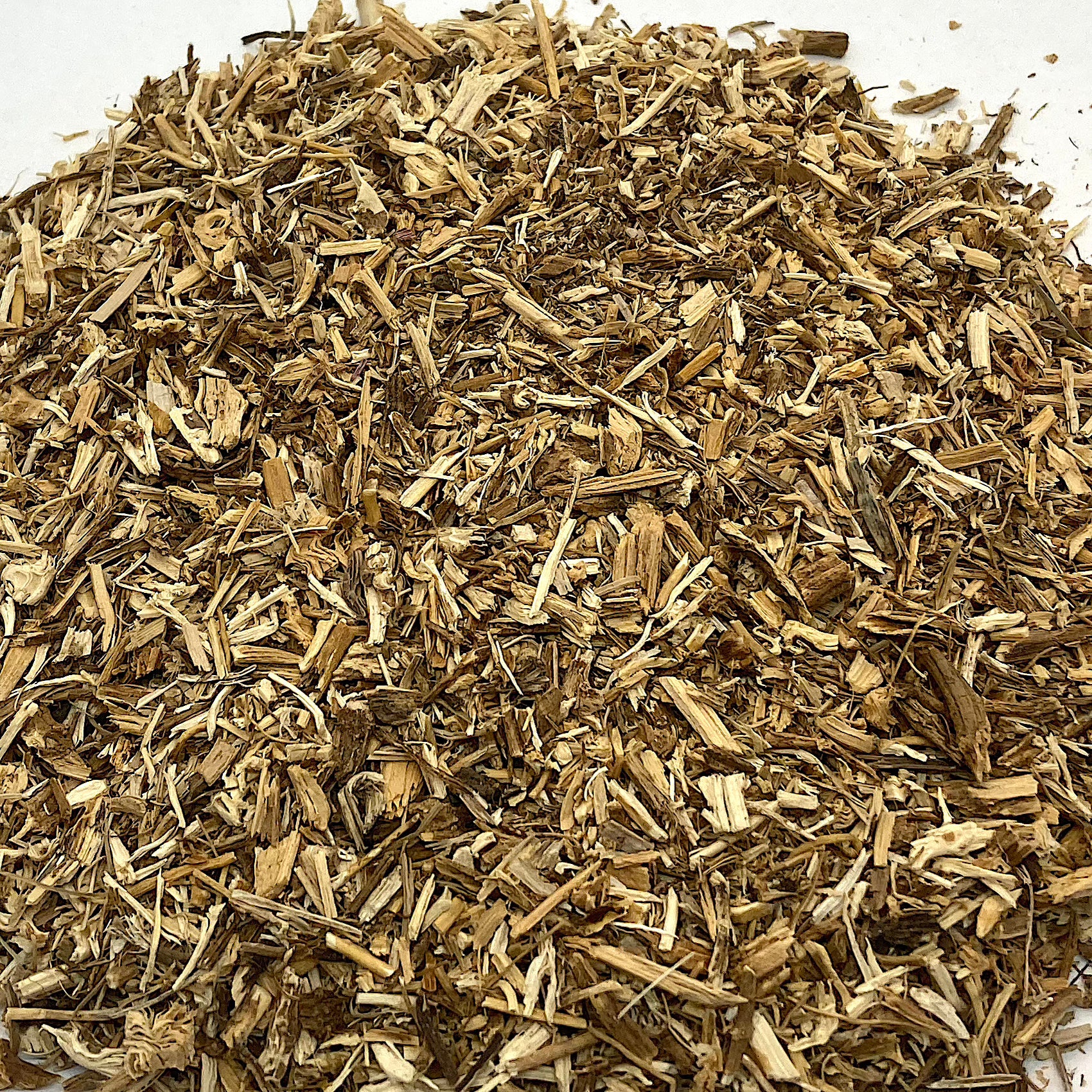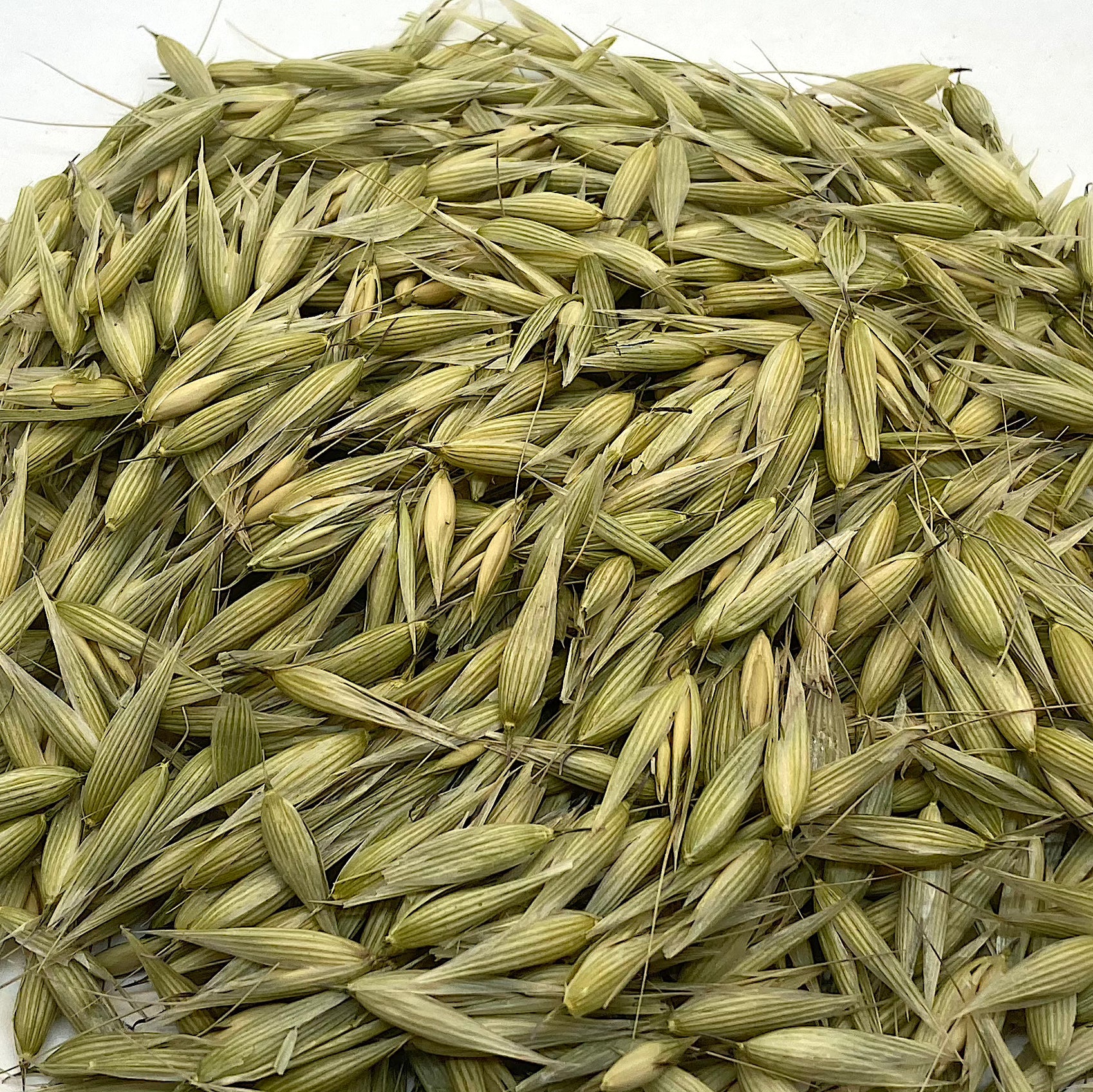Description
NEW MEXICO. Ocotillo (Fouquiera splendens) Bark, Wild Harvested
Common names: Coachwhip, Candlewood, Wolf's Candle, Slimwood, Desert Coral, Jacob's Staff, Jacob Cactus, Vine Cactus, Barda
Family: Fouquieriaceae
Ocotillo is a unique inhabitant of the Southwestern Mojave, Sonoran, and Chihuahuan deserts, from southern California to Texas and down into northwest Mexico. It grows from 9 to 30 feet or more in height, appearing to be a cluster of dried-up, spiny sticks for much of the year, which burst into leaf and flower after spring and summer rains. The taller specimens of this slow-growing plant are believed to be several hundred years old.
Natives in the area have eaten Ocotillo flowers, flower nectar, and seeds, and used the bark, roots, and flowers as medicine. The bark is best known to herbalists for stimulating immunity to colds, sore throats, and coughs, and for improving energy and promoting pelvic lymph flow in a wide range of conditions accompanied by swelling and congestion, including cardiovascular edema, varicose veins, hepatitis, alcoholic cirrhosis, uterine congestion, PMS, ovarian cysts, uterine fibroids, endometriosis, prostate enlargement, recurrent bladder infections, chronic constipation, hemorrhoids, impaired fat absorption, deficient libido, and psoriasis. Ocotillo Bark is most effectively extracted as a tincture.
Ocotillo Bark is best avoided during pregnancy and breastfeeding.
*These statements have not been evaluated by the FDA. These products are not intended to diagnose, treat, cure or prevent any disease.








